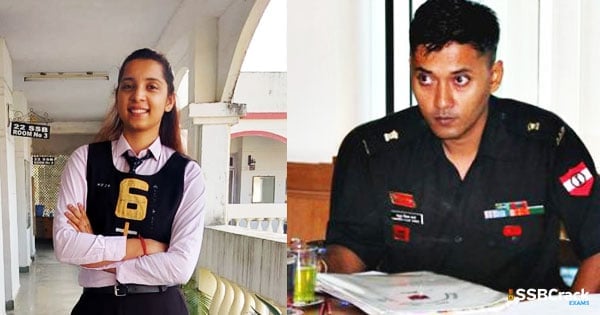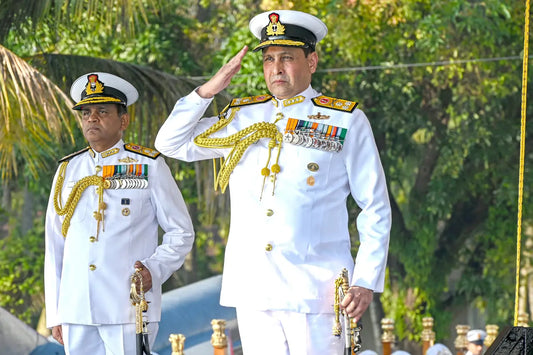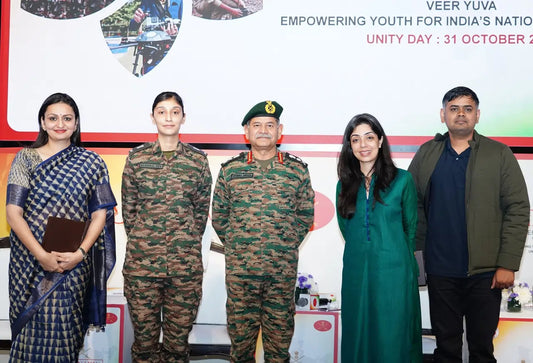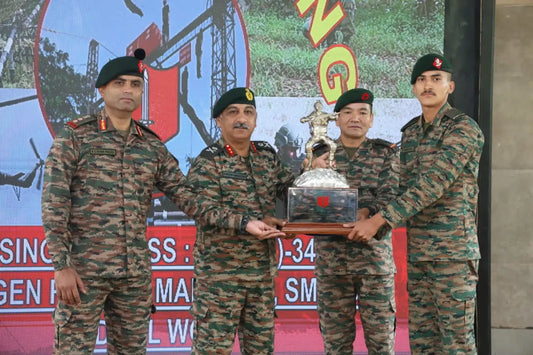SSB Interview 2025: Essential Questions, Sample Answers, and Preparation Tips for Success

The Services Selection Board (SSB) interview is a pivotal stage for those aspiring to join the Indian Armed Forces as commissioned officers. This comprehensive interview evaluates candidates' knowledge, skills, personality, character, and motivation to serve the nation. As the year 2025 approaches, mastering the art of responding to interview questions with thoughtful and genuine answers will be crucial for success.
Introduction
For many young individuals, joining the Indian Armed Forces represents a dream driven by patriotism, adventure, and a desire to serve. The journey to becoming an officer involves stringent assessments, beginning with the SSB interview—a meticulous five-day process that gauges various attributes, including intelligence, leadership potential, and emotional maturity. This article explores the types of questions candidates might face during the SSB interview in 2025, offering sample answers and valuable preparation tips.
Historical Context
The SSB interview has undergone significant evolution over the decades, mirroring the growth and changing demands of the Indian Armed Forces. Established in the early 1960s, the SSB was created to evaluate candidates for officer roles with a professional approach, moving away from previous systems that overly emphasized academic knowledge. As the geopolitical landscape transforms, so too does the SSB, with its evaluation processes adapting to identify the qualities essential for modern officers.
Emphasis on personality and psychological assessment, particularly through the Thematic Apperception Test (TAT) and Group Testing Officer (GTO) tasks, has become crucial. These tests delve into candidates' thought processes, behaviors, and interpersonal skills.
Key Aspects of SSB Interview Questions
The SSB interview covers several inquiry domains, broadly classified into personal background, strengths and weaknesses, preparation, situational responses, and family influences.
1. Personal Background and Motivations
Candidates commence with standard introductions, where interviewers evaluate their ability to concisely articulate personal stories.
-
Typical Questions:
- “Tell me about yourself.”
- “What is the meaning of your name and why was it chosen?”
- “Why do you want to join the Indian Armed Forces?”
- Sample Answer: “My name is Arjun Sharma, which means ‘bright’, reflecting my parents' hopes for me to lead a life of clarity and purpose. I hail from Bhopal, a city rich in history and culture, and I recently completed my engineering degree from XYZ University. The discipline, teamwork, and integrity inherent in the Armed Forces resonate deeply with my values. I aspire to serve my country by leading with honor and making a meaningful impact."
2. Strengths and Weaknesses
This segment examines candidates' self-awareness and humility, vital traits for a prospective officer.
-
Typical Questions:
- “What is your biggest strength? Give an example.”
- “What weaknesses have you identified and how are you working on them?”
- Sample Answer: “I believe my greatest strength is my ability to remain calm under pressure, which I demonstrated during my final year project, where I led a team to overcome significant challenges. We had a tight deadline, and despite setbacks, I kept the team focused and motivated. As for weaknesses, I tend to overthink decisions. I’m actively working on this by setting time limits for major decisions and practicing quicker analysis of situations.”
3. Preparation and Routine
Interviewers assess candidates' discipline, dedication, and readiness for military life through their daily habits and preparation techniques.
-
Typical Questions:
- “What does your daily routine look like?”
- “What special preparation have you done for this attempt?”
- Sample Answer: “My daily routine begins at 5 AM with a fitness regimen, including running and strength training, followed by meditation for mental clarity. I dedicate two hours a day to study current affairs and engage in group discussions with peers preparing for similar exams. Each week, I assess my progress, which helps me stay organized and focused.”
4. Situational and Behavioral Questions
This line of questioning seeks to assess candidates' problem-solving capabilities and leadership potential.
-
Typical Questions:
- “Tell me about a time you faced failure and how you dealt with it.”
- “What is your vision for your future in the armed forces?”
- Sample Answer: “In my second year at university, I failed in a subject that was crucial for my specialization. Instead of getting discouraged, I took a step back to analyze where I went wrong. I sought help from professors, formed study groups, and dedicated extra hours to grasp the concepts. This experience taught me resilience and the value of seeking support, shaping my vision for the future—I want to embody this resilience as an officer, motivating my team to face challenges collectively.”
5. Family Background and Influence
Family dynamics and support systems significantly shape candidates' values and ambitions.
-
Typical Questions:
- “What influence have your parents had on your career choices?”
- Sample Answer: “My parents have always emphasized the importance of integrity and hard work. My father served in the police force, and from an early age, I was inspired by his commitment to serving the community. My mother instilled in me the value of resilience and adaptability. These core principles are what drive my ambition to join the Armed Forces.”
Structure of the SSB Interview Process (2025)
Understanding the SSB interview format is critical for effective preparation. The five-day process includes:
- Day 1: Screening Test – An initial assessment that filters candidates based on their performance in written tests and interviews.
- Days 2-3: Psychological Tests – This includes the Thematic Apperception Test (TAT) and other written psychological tests designed to assess personality.
- Days 3-4: Group Testing Officer (GTO) Tasks – Practical tests involving group discussions, outdoor tasks, and obstacle courses that evaluate teamwork and leadership.
- Day 5: Personal Interview – Final interviews with a panel of officers, where candidates reflect on their journey and aspirations.
Tips for Answering SSB Interview Questions in 2025
Preparing for the SSB interview can be challenging, but certain strategies can boost a candidate's chances of success:
- Be Honest and Self-Reflective: Authenticity resonates well with interviewers. Offering real-life examples fosters trust.
- Showcase Leadership Potential: Candidates should highlight experiences where they’ve led teams or taken initiative.
- Structured but Natural Responses: Prepare a mental outline for answers, allowing for spontaneity and natural delivery. Over-rehearsing can lead to a robotic tone.
- Maintain Calmness and Confidence: Practice relaxation techniques to curb anxiety. Visualization can be an effective tool in imagining success.
- Backup Plans: Candidates should be prepared for adverse outcomes. Exploring options in related fields such as technical roles in defence can be sensible.
Statistical Data and Research Insights
Recent studies indicate that soft skills are as vital as technical skills in military training and operations, with leadership and integrity being top priorities for officers. According to the Indian Army, approximately 30% of candidates who succeed in the SSB interview possess exemplary emotional intelligence, as determined by their handling of situational questions during interviews.
Challenges and Solutions
Candidates often encounter various challenges in their SSB journey, such as:
- Nervousness During Interviews: Practice mock interviews with peers to build confidence.
- Inadequate Knowledge on Current Affairs: Regular reading of reputed newspapers and magazines will bolster awareness.
- Physical Fitness Levels: Engage in consistent exercise regimens well in advance of the interview date to ensure fitness is at its peak.
Future Trends and Predictions
The SSB process is likely to further evolve with technological advancements. Virtual interviews and AI-driven assessments may become standard, enhancing the reach and efficiency of candidate evaluations. Future candidates will benefit from comprehensive online resources, interactive training modules, and peer-to-peer networks that make preparation more accessible.
Conclusion
The SSB interview is a decisive step for those aspiring to be officers in the Indian Armed Forces, combining rigorous evaluations of personal attributes, problem-solving skills, and situational awareness. With the right strategies and an understanding of typical questions, candidates can significantly enhance their chances of success.
For those serious about joining the Armed Forces, investing in study materials and online courses from resources like SSBCrack and SSBCrackExams is advisable, as they offer tailored guidance and insights. Ultimately, the SSB not only assesses potential officers but also shapes them, refining the qualities needed for future leaders of the Indian Defence Forces. Engage with respect, self-awareness, and a commitment to learning—qualities that will serve you well in your journey ahead.



















